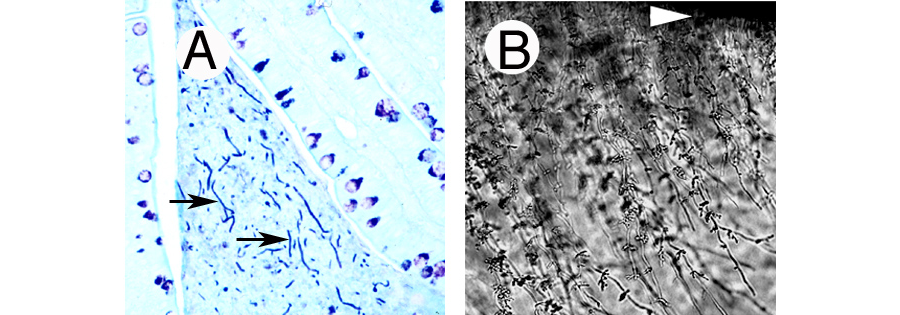The Carol Kumamoto Lab
Host/Candida Interactions in Health and Disease
The goal of our research is to understand how the fungus Candida albicans interacts with its host during both normal colonization and invasive disease. C. albicans is a benign commensal that normally colonizes humans. As a commensal, the organism colonizes the gastrointestinal tract, skin and genitourinary tract of a human host for long periods of time without causing disease. However, if the host becomes immunocompromised, colonizing fungal organisms produce the characteristic invasive lesions associated with candidiasis. Under these conditions, C. albicans is capable of causing life-threatening infection.
Through our studies we seek to answer the following questions:
- What factors determine the population size of C. albicans in the intestinal tract of a healthy host?
- How do colonizing cells adapt to the environment that is encountered in the intestinal tract?
- What environmental cues stimulate invasive growth of C. albicans into host tissue?
- What protein factors are involved in the response of cells to cues from the environment?
To understand C. albicans activities that promote commensal colonization, gene expression by C. albicans during colonization is being studied. Results to date demonstrate that C. albicans expresses genes that regulate its colonization. C. albicans is also capable of responding to the immune status of its host. During colonization of an immunocompromised host, changes in C. albicans gene expression allow the organism to colonize to higher levels, potentially setting the stage for invasive infection.
Figure 1. The section shown in A illustrates invasive growth in vivo; the image shown in B illustrates how contact with a semi-solid matrix results in the development of filaments.
Growth in contact with an agar matrix results in activation of a signaling pathway that promotes the development of invasive filaments. The ability to produce filaments under these conditions is essential for full virulence of C. albicans.

